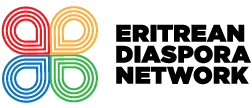This month’s spotlight features Kibra Yemane, an HR Business Partner at Netflix. Read on to learn more about Kibra and her interesting path to a successful Human Resources career.
Could you briefly explain some of your responsibilities in your current career role?
I am currently a HR Business Partner at Netflix. In this role, I partner with leaders across the groups I support on topics like organizational design (i.e. is the organization structured for success?), talent management (do we have the right people in the right roles?), employee engagement and team health, compensation, and all other topics related to ensuring the business is set up for success with regards to talent.
How did you come to decide that this was the right career path for you?
I wish I had a great answer, but I kind of stumbled into discovering my interest in HR! I graduated from college and started working in Financial Services. One year, I volunteered to go back to my alma mater to help with recruiting efforts and I loved being able to talk to students about my professional experience. I was able to help them connect the dots with their interests, how they fit into an organization like PwC and what value they could bring to the organization. After I got home from that trip, I thought I could be on to something and connected with other HR professionals to learn more about their roles. After countless hours of informational interviews, I said to myself “OK, I think this is what I’d like to do.” Looking back, it’s actually pretty wild that I made a decision to completely shift my professional direction after one experience, but I think I was a lot more fearless back then!
What skills have you found vital for your job, and how did you learn them?
Communication and the ability to build relationships, the ability to be comfortable with data and business acumen/curiosity.
Can you pinpoint some of the easily avoidable mistakes new hire’s make when negotiating their salary with a new employer?
Don’t answer questions around salary expectations on the first ask – you can always come back to that question once you’ve got a better idea of the role, a true understanding of scope and other relevant details that can help you make an informed ask around salary expectations. This can be tough, but where possible, I really encourage people to check their personal network to see if there is someone internal they can speak with in regards to negotiating an offer. Sometimes it really comes down to you don’t know what you don’t know – and I think it’s OK to ask for advice. If not internal, someone in the same industry/role.
What are three important factors to consider when choosing a new job?
There are several factors to consider when choosing a new job, but I try to think about it a couple of ways by answering the following questions:
- How does this new position help me in my overall professional journey?
- Why am I leaving my current position? Is it for more money, more responsibility, desire to relocate to a different part of the country/world?
- And I think this is the most important aspect – How does this job fit into my life? As I’ve gotten older, there are certain things I’ve prioritized in my life – and if the new job doesn’t align with that, no matter how great it might be, it may not be the right move (at least for right now).
What are the most rewarding and challenging aspects of your career?
The most rewarding aspect of my job is when I am able to see growth with the leaders I support – this will usually have a positive impact on the overall organization. Second, is when I have an employee, at any level really, tell me that they trust me. I’m well aware of the reputation that HR has across many organizations (some positive, some not so positive), but when there is trust, it helps in navigating the most difficult situations.
Working in HR, you’re dealing with various issues that employees face in the workplace. What’s a common issue that regularly comes up and how do you advise folks to deal with it?
This is a hard one to answer, because this could be answered many different ways. But as of late, burnout is a serious concern I have for the leaders and teams I partner with. The pandemic impacted so many people – I always advise folks to not be afraid to leverage the resources we have in order to help navigate these challenging times.
To date, what is your greatest professional accomplishment?
Not to toot my own horn, but I give really great professional advice (sometimes I wish I actually followed my own advice!). So, while professional accolades are great – actually seeing those I’ve given advice to land a new job, negotiate an offer, navigate a sticky situation at work or taking the plunge for something new – that is my greatest accomplishment! Titles and money are great (I wouldn’t be honest if I said they weren’t), but really it’s about helping others along the way. We are all just trying to make it out here.
What’s one piece of advice you would give someone looking to transition into your line of work?
Be prepared to talk all day, and know how to leverage data to influence and tell a story.
What do you do for fun outside of all of your hard work and efforts toward building your career? Hobbies?
I love live music and travel (all things that were impacted due to COVID shutdowns) – so I am just getting back into the swing of things with that. I love wine (not sure if that is a hobby, but I love it so much I think it is for me). And of course, spending time with family and friends.


This is excellent! I also suggest that you hold a yearly seminar with young Eritrean and other marginalised young women to discuss career development and mentoring.
This is wonderful accomplishment I am very proud of you Kibra Yemane.